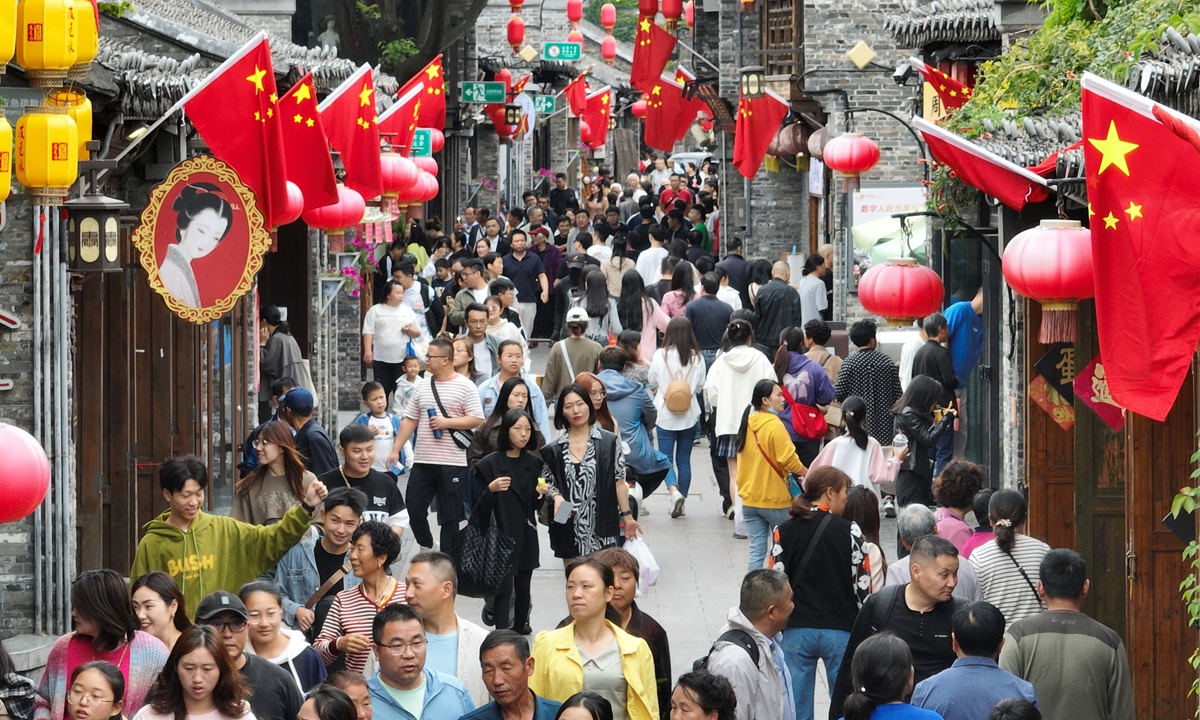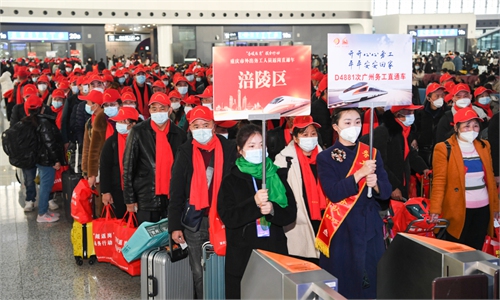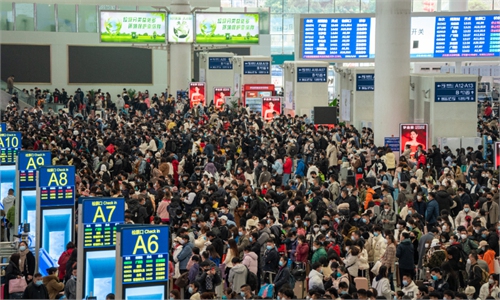2024 Spring Festival holiday schedule sparks online debate as Chinese New Year’s Eve not included

An old street is packed with tourists in Yangzhou, East China's Jiangsu Province on October 6, 2023, the last day of the Mid-Autumn Festival and National Day holidays. Photo: VCG
The newly released 2024 Spring Festival holiday schedule has sparked heated discussion on Chinese social media as Chinese New Year's Eve has not been included. Critics of the plan said it lacks consideration for the public's desire to reunite with family during this most important Chinese festival, whilst defenders say the arrangement was made to guarantee a longer-than-usual Spring Festival holiday.
According to a notice published by the State Council on Wednesday, the Spring Festival holiday of 2024 - the traditional Chinese festival for family reunion - will last eight days, from February 10 to 17. The notice encourages government bodies and companies to give employers paid leave on February 9 - Chinese New Year's Eve.
However, the arrangement has sparked heated discussion online. The Hashtag "no holiday for Chinese New Year's Eve" has earned more than 140 million views on Sina Weibo as of press time.
Some netizens questioned whether it should be seen as a lack of consideration, especially for those who don't live with their family.
Although there is no official holiday on Chinese New Year's Eve, Xing Wei, a researcher from the Academy of Macroeconomic Research, noted that the notice does encourage employers to flexibly arrange time off. At the same time, the tolls on highways have been waived, essentially creating conditions for the general public to have an extra day off, Xing added.
Cheng Ke, who works at a hospital in Chongqing Municipality, told the Global Times that her supervisor has informed employees that those who live far away from their hometowns can take the day of Chinese New Year's Eve off in order to get home earlier and reunite with their families.
Daisy Xu, who works for a Chinese company in Shanghai, said that her company usually lets employees take off a week before the Spring Festival, and allows them to arrive later than the officially scheduled end of the holiday for work.
"For many companies, the holiday arrangement is really flexible… because many employers are aware of how much their employees want to see their families during this most important festival."
In fact, extending the holiday by one day means more costs for many employers, as well as increased costs for the public sector, such as the addition of free days on highways, said Zhang Yiwu, a professor of Chinese language and literature at Peking University. He said that if the longer-than-usual Spring Festival proceeds smoothly, more public holidays are likely to be extended, not only giving people more time to rest, but also to better stimulate consumption.
Zhang said that he noticed that even though this Spring Festival is longer than before, there are no plans to make up for the extended holiday by changing a Saturday or Sunday to a work day, a means that is often used after a long holiday in China.
Although there have been complaints, the release of the holiday schedule has boosted searches for tours on travel portals.?Searches for flights for the Spring Festival holiday on online platform Tongcheng Travel increased by seven times compared with the day before. Some tourists have already started searching for and purchasing plane tickets for the 2024 National Day holiday.
According to a research conducted by online travel services provider Qunar, the domestic destinations that users are most interested after the release of the news are Sanya, Dali, Beihai, Haikou and Xishuangbanna. As for outbound travels, the destinations with a significant increase in searches are mainly in Europe such as Spain, Switzerland and France, as well as New Zealand and Australia.
The big data research institute at Qunar also gave an analysis that said there will be three new characteristics for Spring Festival travel in 2024: First, passenger flow during this holiday will significantly increase. Second, the peak travel period will be spread out, allowing people to plan their trips at different times. Moreover, the total travel distance for users will be extended, and many travelers may choose to visit an additional destination.
Dai Bin, president of the China Tourism Academy, told the Global Times that the longer-than-usual 2024 Spring Festival holiday will fully meet people's desire to reunite with family, visit relatives and friends, and travel outside the country.
"It can be expected that the Spring Festival of 2024 will be the most active in terms of tourism and the highest in terms of consumption," Dai said.


